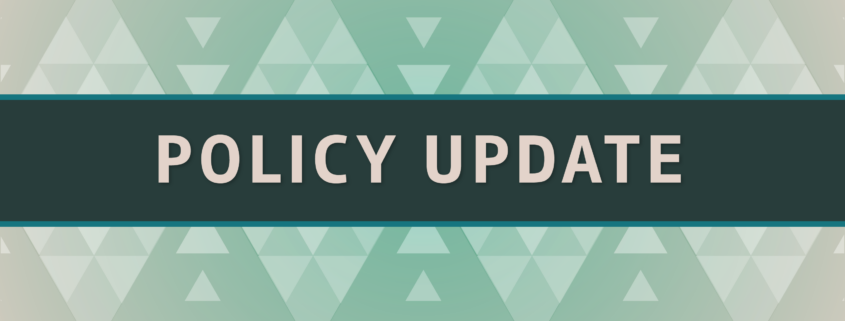December Policy Updates: Continuing Resolution, Advocacy, and Key Updates for Urban Indian Health
In this Edition:
📜 Appropriations Update: Continuing Resolution Signed Into Law with SDPI Extension.
💡 Legislative Updates: FMAP, Native Veterans, Lumbee Fairness Bill, MMIP, IHS Workforce, and Federal Boarding Schools.
⚖ Monitoring the Bench: Tennessee’s Ban on Gender Affirming Care for Minors.
🆕 New Releases: USDA 2025 Dietary Guidelines Advisory Committee Releases Scientific Report.
🎤Advocacy: NCUIH Provides Key Recommendations on Behavioral Health Funding, Health IT Modernization, National HIV/AIDS Strategy, and Proposed Reorganization of IHS Headquarters.
📬 ICYMI: House Oversight Hearing “Investigating the Crisis of Missing and Murdered Indigenous Women”, Recent Dear Tribal and Urban Leader Letters.
🏅 Awarding Native Health Allies: NCUIH Presents Good Medicine Awards to Outgoing Legislators Tester and Peltola.
🤝 NCUIH in Action: White House Tribal Nations Summit, National Congress of American Indians and Indian Gaming Association Tribal Leaders Meeting, and Holiday Receptions with Government Leaders and Partners.
🔍 Save the Date!: NCUIH 2025 Annual Conference (April 22 – April 25).
📆 Important Dates and Events: Upcoming Events, from IHS monthly Conference Call to FY 2027 National Tribal Budget Formulation Workgroup Area Report Webinar.
📋 Funding Opportunities: HRSA’s Behavioral Health Workforce Development Technical Assistance Program.
Appropriations Update: Continuing Resolution Passed
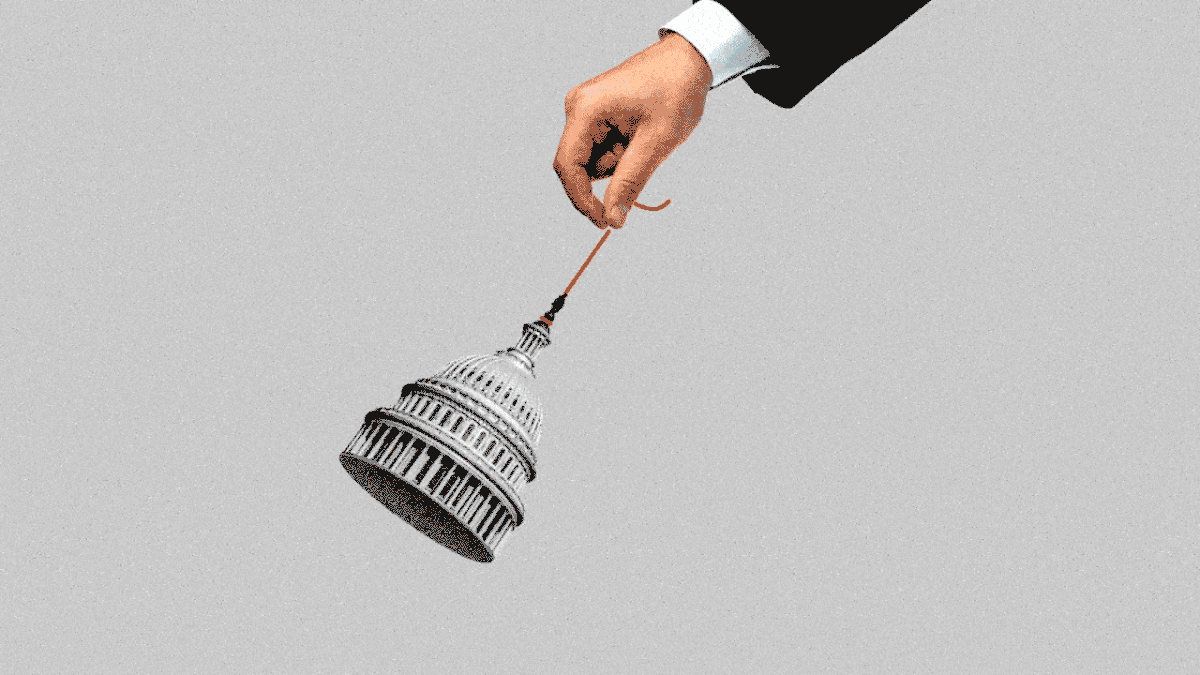
Congress Enacts Continuing Resolution
On December 20, Congress passed a Continuing Resolution (CR) to extend government funding set to expire on December 20, 2024 until March 14, 2025, averting a government shutdown.
- The CR contains several riders including funding for farming, disaster relief, and extension of several public health programs set to expire on December 31, 2024.
- Read the bill text here.
Key Public Health Programs Extended:
- The CR extends current funding for the Special Diabetes Program for Indians (SDPI) through March 31, 2025, at $39.3 million. The program was set to expire on December 31, 2024.
- Extends Medicare telehealth flexibilities until March 31, 2025.
- Extends current funding Community Health Centers, National Health Service Corps, teaching health centers that operate GME programs until March 31, 2025.
What’s Next: Congressional leaders work to pass a FY 2025 appropriations package before the extended deadline.
Legislative Updates: FMAP, Child Welfare, Native Veterans, Lumbee Fairness Act, MMIP, IHS Workforce, and Truth and Healing Commission
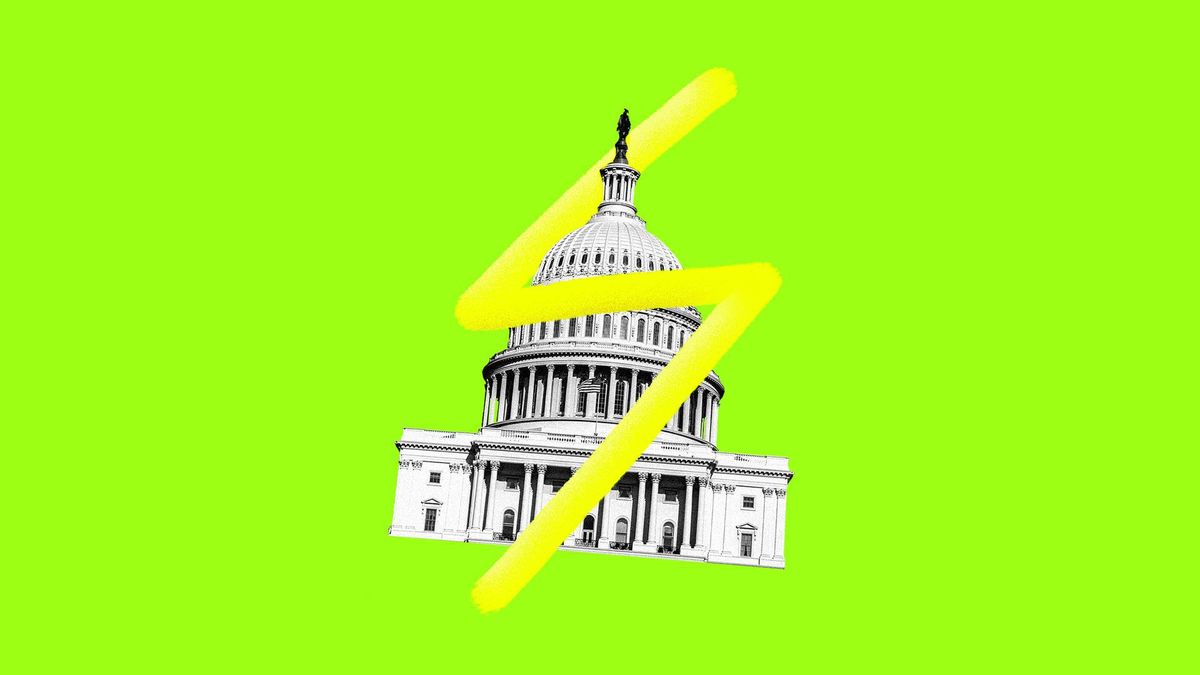
Federal Medical Assistance Percentage (FMAP) Update:
On December 6, 2024, NCUIH and 35 health care advocates sent a letter to Congressional Leadership requesting the inclusion of 100% Federal Medical Assistance Percentage (FMAP) for UIOs to be included in the end-of-year public health extenders package.
Native American Child Protection Act (H.R. 663)
- On December 17, 2024, the Native American Child Protection Act passed the Senate and is set to become law.
- What is it?: This bill would reauthorize and revise Programs to investigate and prosecute child abuse, child neglect, and family violence involving Native American children.
- How does it impact UIOs? The bill makes UIOs eligible for the Indian Child Abuse Treatment Grant Program, creates a National Indian Child Resource and Family Services Center (the Center) that will provide technical assistance and training to Tribes, Tribal organizations, and UIOs, and allows UIO representatives with expertise in child abuse and child neglect to sit on a 12-member Advisory Board to advise and assist the Center.
- Read NCUIH’s blog on H.R. 633 passage.
Elizabeth Dole Home Care Act of 2024 (S.141)
- On December 16, 2024, the Elizabeth Dole Home Care Act of 2024 passed the House and is set to become law.
- What is it?: The bill is a comprehensive package of bills that significantly expands and reforms the delivery of services at the U.S. Department of Veterans Affairs (VA) for veterans, service members, and their families.
- How does it impact UIOs? This legislation directs the VA to collaborate with the Director of the Indian Health Service (IHS) and representatives from Tribal health programs and UIOs to ensure the availability of home-and community-based services for AI/AN Veterans.
Lumbee Fairness Act (H.R. 1101)
- On December 17, 2024, the Lumbee Fairness Bill passed the House.
- What is it?: This bill would extend full recognition by the US to The Lumbee Tribe of North Carolina, making the Tribe and its enrolled members eligible for benefits provided to federally recognized Tribes.
- What is next? The bill did not pass the Senate and will need to be reintroduced in the next Congress.
Bridging Agency Data Gaps and Ensuring Safety (BADGES) for Native Communities Act (S. 465)
- On December 16, 2024, the BADGES for Native Communities Act passed the Senate.
- What is it?: This bill requires law enforcement agencies to report on cases of missing or murdered Native people.
- How does it impact UIOs? UIOs are eligible entities for the missing or murdered response coordination grant program established by this bill.
- What is next? The bill did not pass the House and will need to be reintroduced in the next Congress.
IHS Workforce Parity Act of 2024 (S.3022)
- On December 17, 2024, the IHS Workforce Parity Act of 2024 passed the Senate.
- What is it?: This bill allows recipients of Indian Health Professions Scholarships or the Indian Health Service Loan Repayment Program to fulfill their service obligations through half-time clinical practice.
- What is next? The bill did not pass the House and will need to be reintroduced in the next Congress.
Truth and Healing Commission on Indian Boarding School Policies Act of 2023 (S.1723)
- On December 20, 2024, the Truth and Healing Commission on Indian Boarding School Policies of 2023 Act passed the Senate.
- What is it? This bill will establish a Commission to examine and investigate the impacts and ongoing effects of the Federal Indian Boarding School policies.
- What is next? The bill did not pass the House and will need to be reintroduced in the next Congress.
Monitoring the Bench: Tennessee’s Ban on Gender Affirming Care for Minors
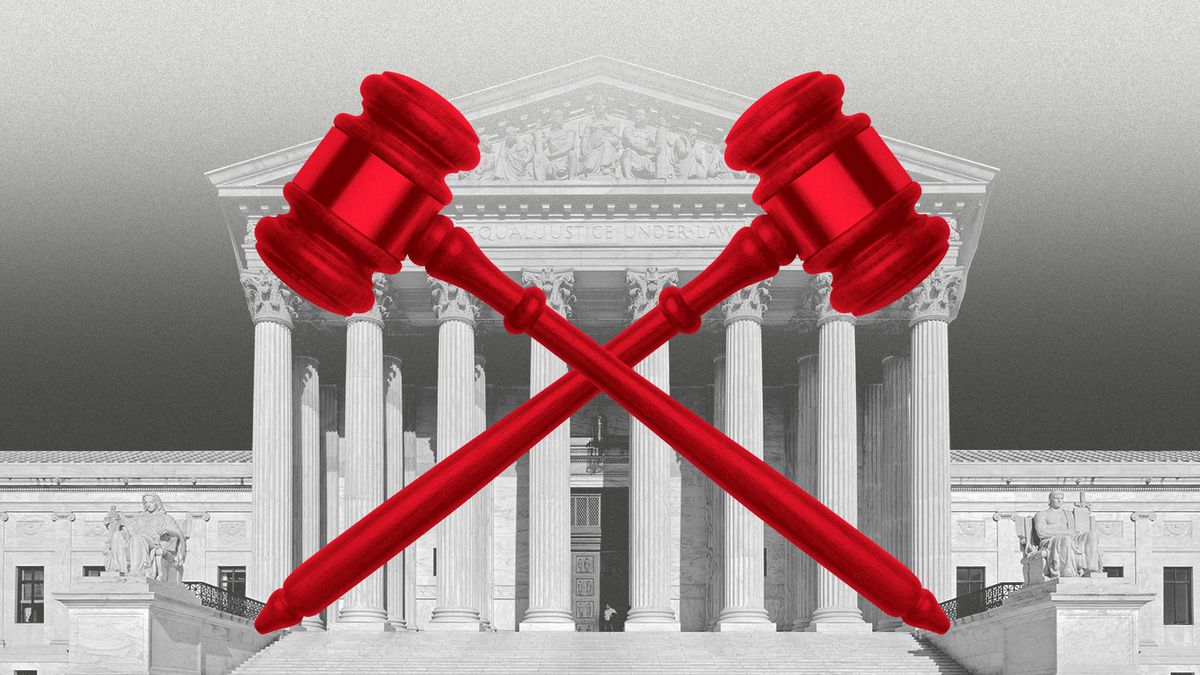
United States v. Skrmetti
- Issue: Whether Tennessee’s ban on gender affirming care for minors violates the equal protection clause of the 14th Amendment.
- Relation to UIOs: If the ban is upheld, could impact how UIOs in states with similar bans or restrictions are able to provide or communicate information relating to gender affirming care with minor patients.
- Case Status:
- Oral argument was held on December 4th.
- Conservative majority on the court seemed to support upholding the ban.
- The decision could have a large impact as 25 states, including OK, MT, UT, AZ and TX, have similar bans in place.
USDA 2025 Dietary Guidelines Advisory Committee Releases Scientific Report
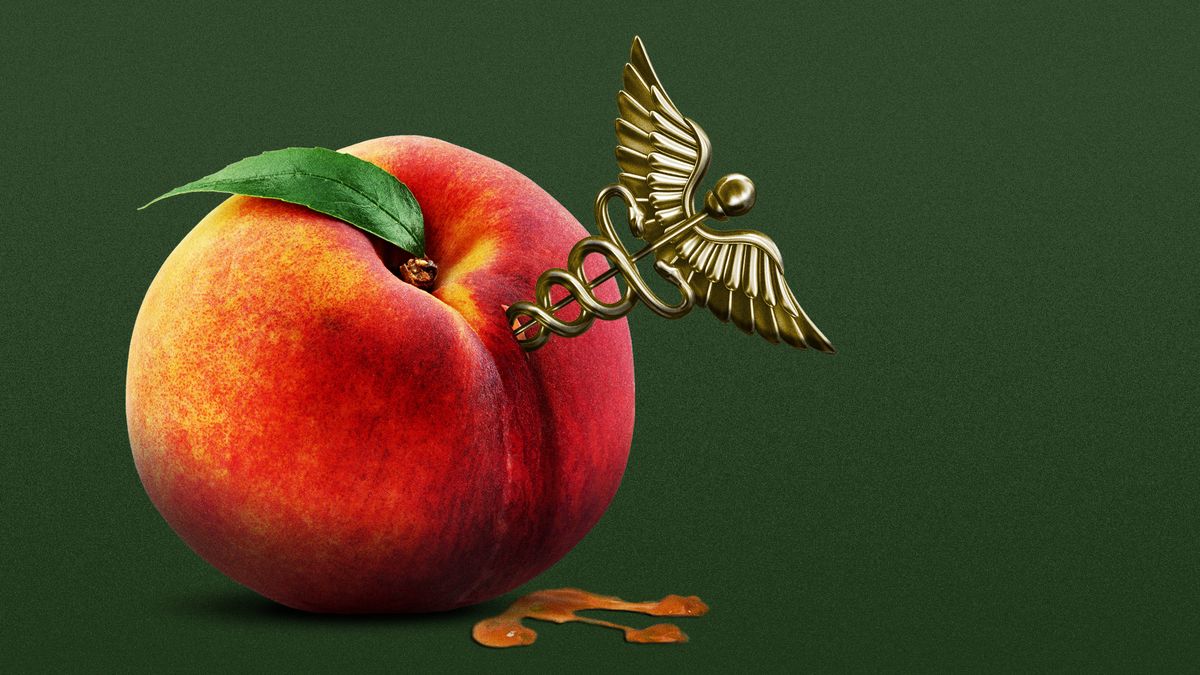
On December 10, 2024, the Department of Health and Human Services (HHS) and US Department of Agriculture (USDA) 2025 Dietary Guidelines Advisory Committee (DGAC) released its Scientific Report.
- NCUIH previously submitted comments to the DGAC recommendation the DGAC which included incorporating research on Traditional Foods in the 2025-2030 Dietary Guidelines
- Go deeper: The Report discusses the importance of Traditional Foods for AI/AN people and states that more research is needed on the dietary patterns and preferences of AI/AN populations to address knowledge gaps regarding AI/AN diets. Read the full report here.
- Deadline for Comments:
NCUIH Provides Key Recommendations on Behavioral Health Funding, Health IT Modernization, National HIV/AIDS Strategy, and Proposed Reorganization of IHS Headquarters
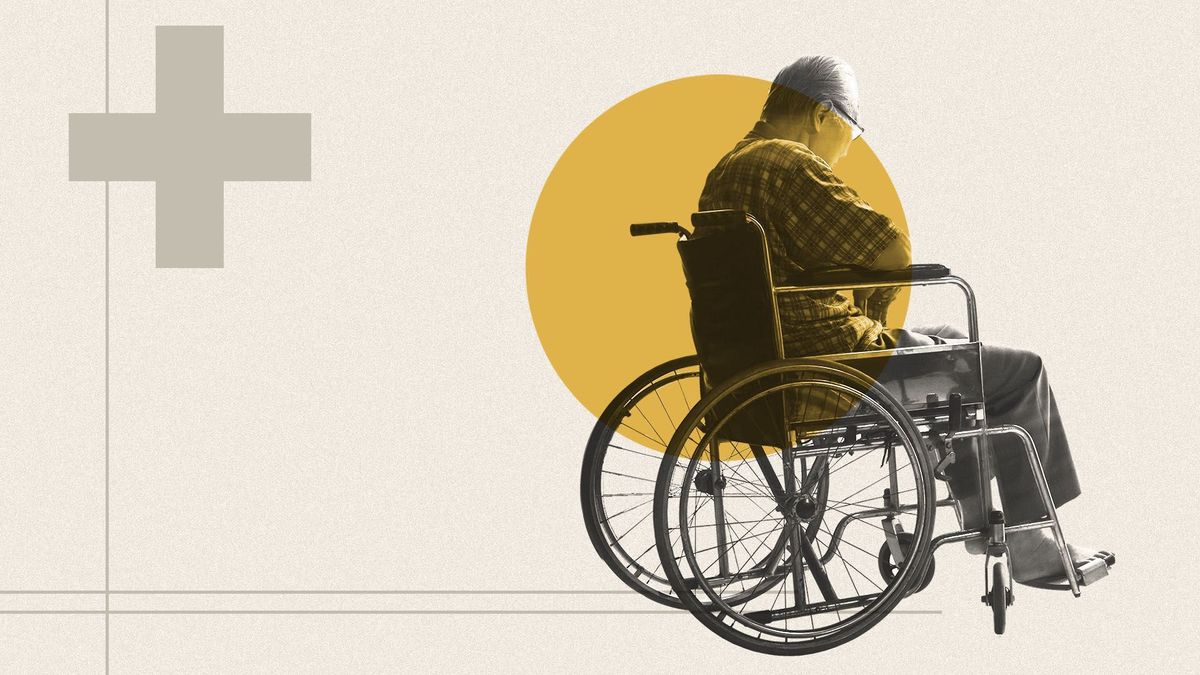
On November 27, 2024, NCUIH submitted comments to the Substance Abuse and Mental Health Services Administration (SAMHSA) regarding its redesigning of the Tribal Behavioral Health (TBH) Grant Program Notice of Funding Opportunity (NOFO) to streamline the application process and allow Tribes to select from two prevention priorities: one NOFO focused on suicide prevention and one NOFO focused on substance use prevention
- Go deeper: NCUIH requested that SAMHSA engage with UIOs by hosting an Urban Confer or UIO listening session
On December 6, 2024, NCUIH submitted comments to IHS regarding the Health Information Technology (HIT) Modernization Site Readiness and Training
- Go deeper: NCUIH requested that IHS support UIOs pre- and post-go-live, provide training that does not disrupt facilities’ operations and reflects real-life scenarios; ensure HIT Modernization implementation is equitable and inclusive for all facility types and sizes pre- and post-go-live; continue to engage with UIOs through Urban Confer sessions to understand the site-level needs that IHS should consider when designing and deploying the PATH EHR; and continue to provide an updated timeline of the PATH EHR implementation.
On December 6, 2024, NCUIH submitted comments to HHS Office of Infectious Disease and HIV/AIDS Policy (OIDP) regarding their Request for Information (RFI) on the development of the 2026-2030 National HIV/AIDS Strategy and the National Strategic Plans for Sexually Transmitted Infections, Vaccines, and Viral Hepatitis
- Go deeper: NCUIH requested HHS OIDP host regularly occurring Urban Confers or UIO listening sessions, include AI/AN people in the list of priority populations for the National HIV/AIDS Strategy, include Traditional Healing for AI/AN people when addressing HIV/AIDS and STI, prioritize efforts to address the specific needs and challenges faced by AI/AN communities in combating STI and access to vaccines, and continue to include AI/AN people as a priority population when addressing viral hepatitis.
On December 13, 2024, NCUIH submitted comments the Social Security Administration (SSA) regarding their Call to Action Plan.
- Go deeper: NCUIH requested SSA ensure UIO representation on the Commissioner’s Tribal Advisory Committee and meaningfully engage with UIOs via Urban Confer or UIO listening session.
On December 16, 2024, NCUIH submitted comments IHS on its proposed reorganization of IHS Headquarters Office of the Director.
- Go deeper: NCUIH requested IHS maintain a dedicated focus on urban Indian health by clarifying the role of the OUIHP Strategic Plan and the proposed Division of Urban Indian Affairs leader, protect the Urban Indian Health line item, ensure meaningful engagement with UIOs through Urban Confer throughout the reorganization process by hosting additional Urban Confers and extend the written comment deadline, and clarify a timeline and next steps for the reorganization.
Upcoming Federal Agency Comment Opportunities
Jan. 10 – CDC Maternal Health and Tribal Maternal Mortality Review
- Overview: This comment opportunity follows a listening session where CDC sought feedback to inform a sustainable funding initiative for Tribes and Tribal serving organizations. CDC solicited feedback from the following areas of discussion:
- Your experiences with promoting maternal health in the communities where you live and/or serve and opportunities you see for improvement.
- Information and data about maternal health that you currently use and important gaps.
- Considerations for conducting a review of deaths during or within one year of pregnancy in Tribal communities.
- Comment Deadline: January 10, 2025. Email to tribalsupport@cdc.gov with the subject line “Maternal Health and Tribal Maternal Mortality Review Listening Session.”
ICYMI: House Oversight Hearing “Investigating the Crisis of Missing and Murdered Indigenous Women”, Recent Dear Tribal and Urban Leader Letters

On November 20, the House Committee on Appropriations, Subcommittee on Interior, Environment, and Related Agencies held an Oversight Hearing on “Investigating the Crisis of Missing and Murdered Indigenous Women.”
Representative Jake Ellzey (R-TX-6) cited NCUIH data on the number of urban Indian people in his district during his testimony:
“I don’t have any tribes in my district, but we do have 20,000 urban tribal members in the Dallas Fort Worth area,” - Rep. Jake Ellzey (R-TX-6).
Representative Pingree (D-ME-01) called for better data collection and reporting on Urban Native women and people experiencing violence:
“The Bureau of Indian Affairs estimates that there are approximately 4,200 missing and murdered cases that have gone unsolved. […] even though approximately 71 percent of indigenous women live in urban areas, research is missing on the rates of murder and violence for these women,” – Rep. Pingree (D-ME-01).
Recent Dear Tribal and Urban Leader Letters (DTLL/DULL)
December 5, 2024, DTLL/DULL – The IHS announces the release of the IHS Strategic Plan for FYs 2025-2029.
- Overview: The IHS Strategic Plan for FY 2025-2029 was released and has four strategic goals:
- Be a Leading Health Care Organization
- Ensure Comprehensive, Culturally Respectful Health Care Services
- Optimize Operations Through Effective Stewardship and
- Promote Proactive Intergovernmental and External Relationships
- NCUIH is currently reviewing and analyzing the Strategic Plan.
December 12, 2024, DTLL/DULL – The IHS reaffirms IHS’ commitment to protecting IHS patients and improving the PRC program.
- Overview: IHS is working with the Consumer Financial Protection Bureau (CFPB) to protect eligible PRC patients receiving IHS-approved medical services from being subjected to improper bills from medical providers and collection activities from debt collectors. IHS and the CFPB are communicating with providers, medical billers, and debt collectors through a joint letter. In the letter, the IHS is reiterating that the IHCIA prohibits them from holding approved PRC program patients liable for any costs or charges associated with the approved health care services.
NCUIH Presents Good Medicine Awards to Outgoing Legislators Tester and Peltola
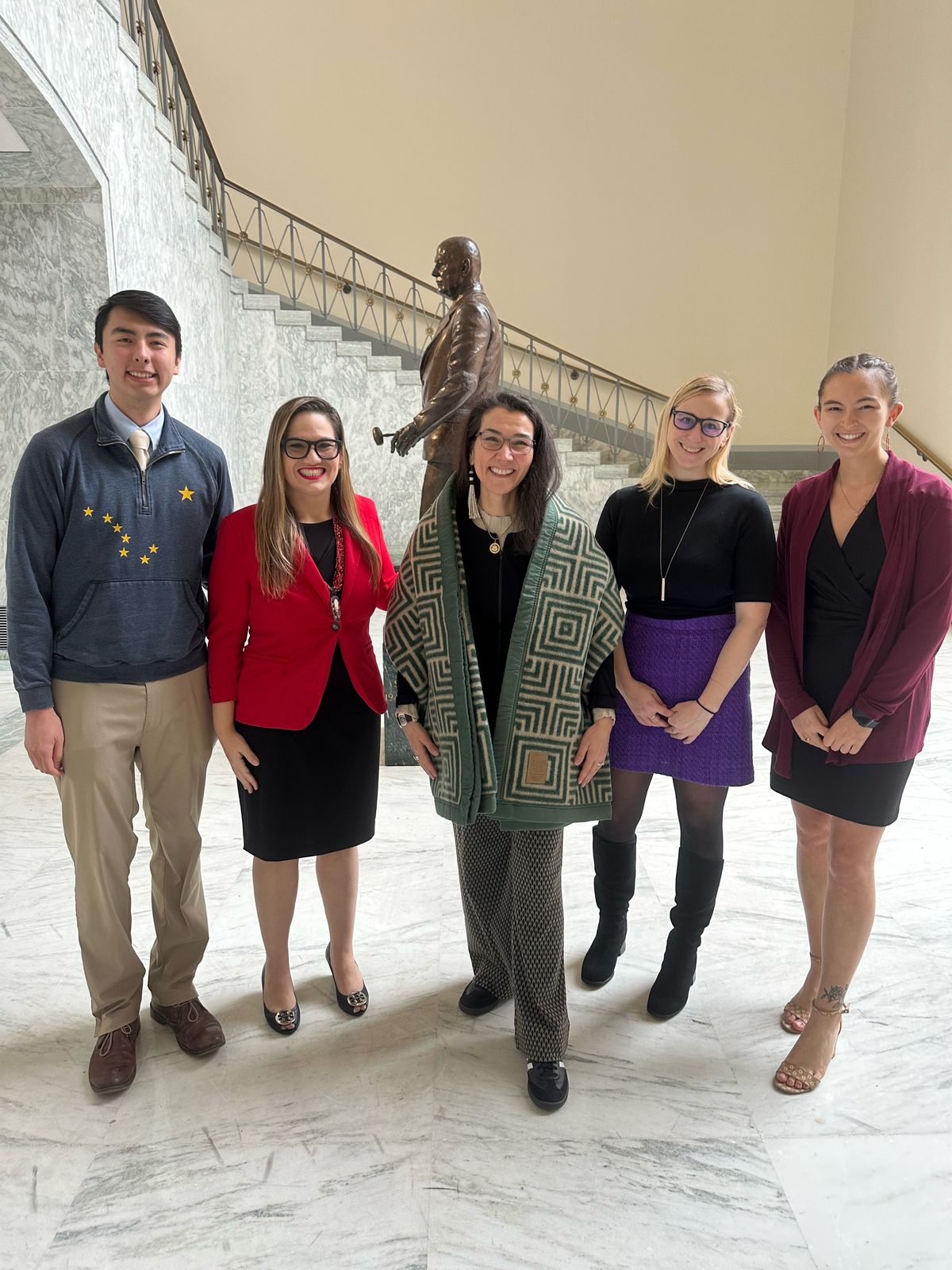
NCUIH staff and Representative Mary Sattler Peltola (D-AK).
On December 11, 2024, NCUIH presented two Good Medicine Awards to Members of Congress for their efforts to support IHS and efforts to improve health outcomes for Native communities during their tenure in Congress.
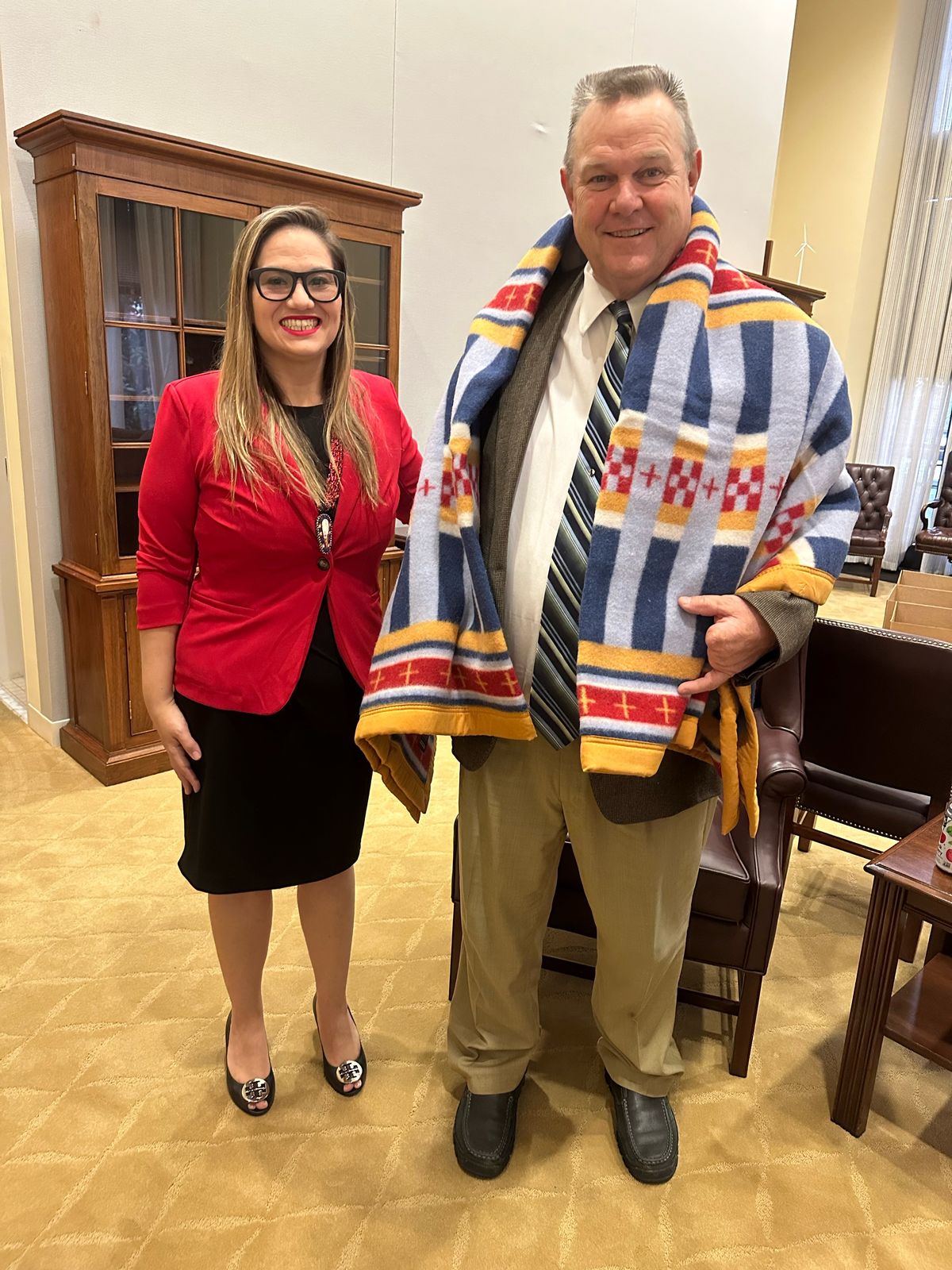
NCUIH CEO Francys Crevier and Senator Jon Tester (D-MT).
Senator Jon Tester (D-MT) and Representative Mary Sattler Peltola (D-AK) were recognized for their outstanding contributions and demonstrated leadership in advancing Native health care. Throughout their tenure in Congress, these individuals have gone above and beyond in their efforts to champion legislation, policies, and initiatives that promote the health, welfare, and rights of Native peoples, and have a proven track record of collaboration, bipartisan cooperation, and effectiveness in advancing legislative agendas that address critical issues relating to Native health.
Read more in NCUIH’s press release.
NCUIH in Action
White House Tribal Nations Summit
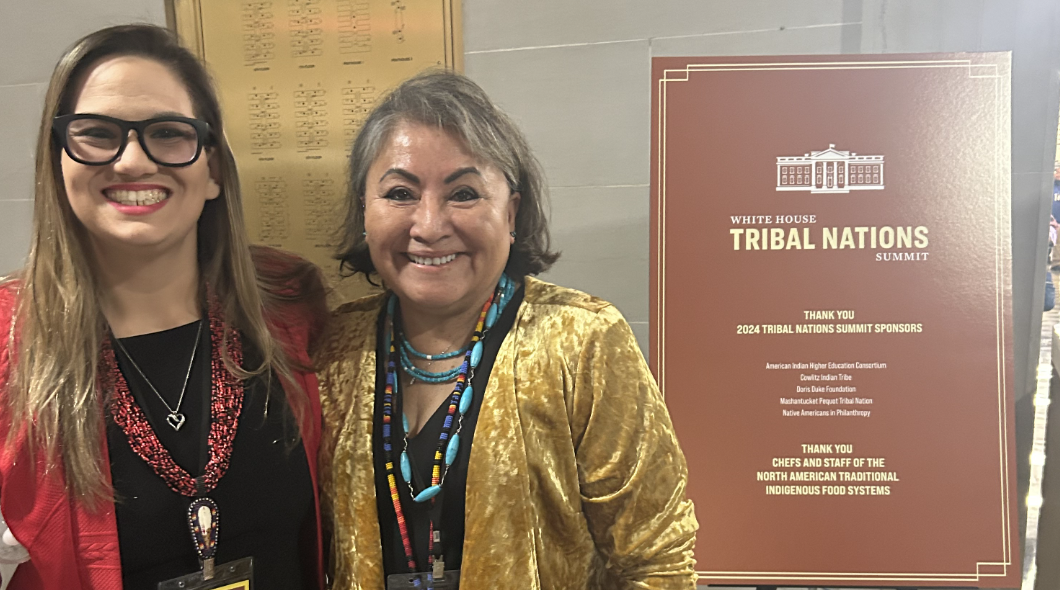
NCUIH CEO Francys Crevier (Algonquin) with IHS Director Roselyn Tso (Navajo) at the White House Tribal Nations Summit.
On December 9, 2024, NCUIH represented UIOs at the White House Tribal Nations Summit. The Tribal Nations Summit, established by Executive Order 13647, is the flagship annual convening of the Federal government and Indian Country, and reflects the Biden-Harris Administration’s commitment to strengthening Nation-to-Nation relationships.
National Congress of American Indians and Indian Gaming Association Tribal Leaders Meeting
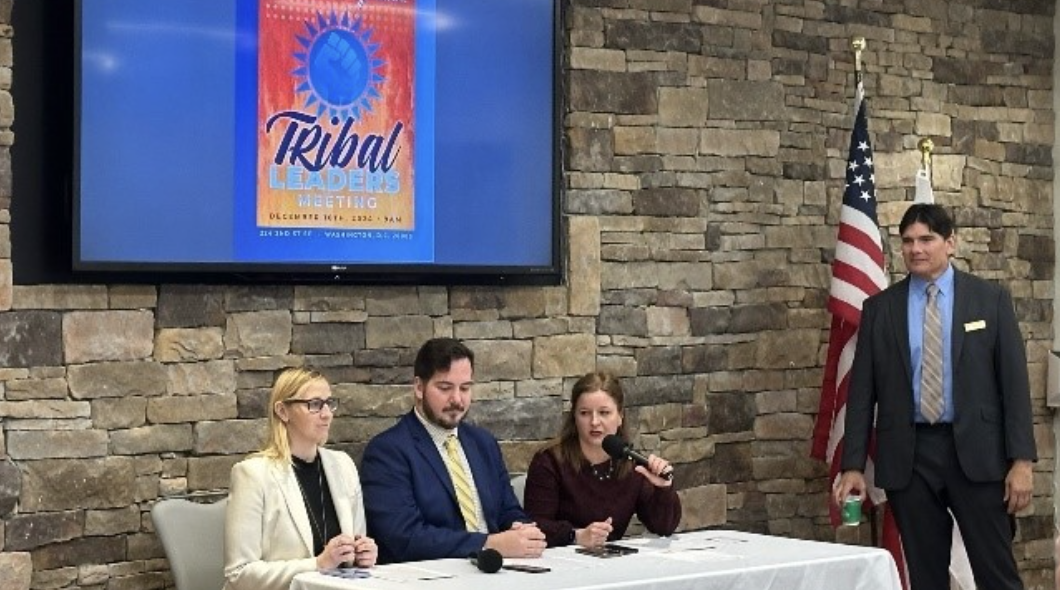
NCUIH Vice President of Policy and Communications Meredith Raimondi and the National Indian Health Board’s Congressional Relations Director Winn Davis and Director of Government Relations Caitrin Shuy.
On December 10, 2024, NCUIH represented UIOs at the National Congress of American Indians/Indian Gaming Association Tribal Leaders Meeting, where they discussed transition strategies for the new administration the advancements in Indian Country over the past four years.
NCUIH attends Vice President, Department of Interior, and Key Partner Holiday Receptions
On December 6, 2024, NCUIH represented UIOs at Vice President Kamala Harris’ Holiday Reception.
On December 11, 2024, NCUIH represented UIOs at the PhRMA Holiday Reception.

NCUIH staff pictured with Liz Mahar, Director of Advocacy and Strategic Alliances at PhRMA.
On December 12, 2024, NCUIH represented UIOs at the Department of Interior Holiday Reception with Secretary Deb Haaland.
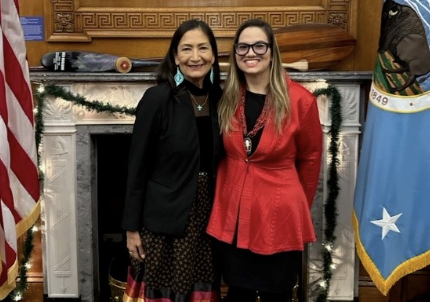
NCUIH CEO Francys Crevier (Algonquin) and Secretary of the Interior Deb Haaland (Pueblo of Laguna).
On December 13, 2024, NCUIH represented UIOs at the Native American Bar Association Holiday Reception.
Save the Date! NCUIH 2025 Annual Conference (April 22 – April 25)
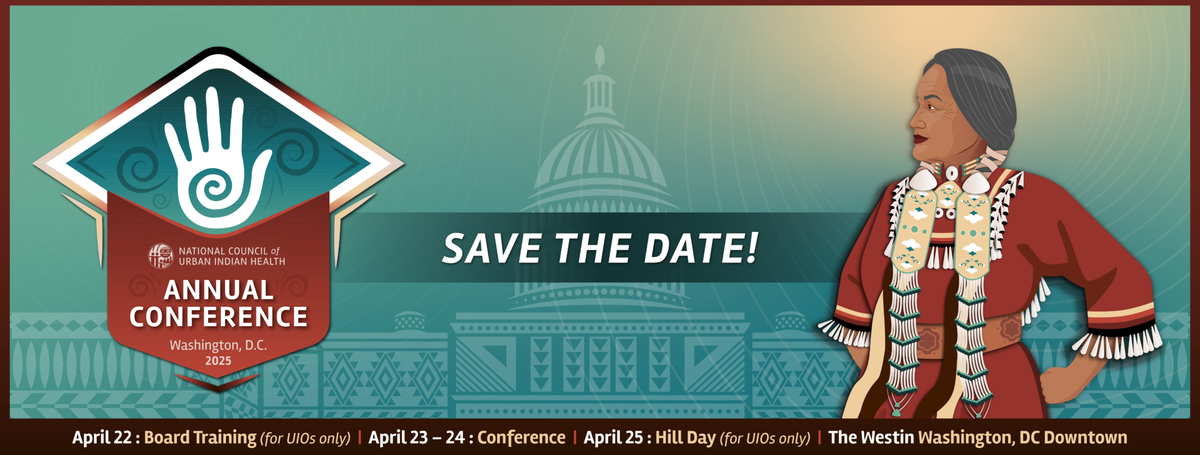
The annual conference provides a platform for UIOs, health care professionals, policymakers, community leaders, and advocates to come together and discuss critical issues related to urban Indian health. Please save the date and stay tuned for further details!
Conference Schedule Overview
- Tuesday, April 22: Training for Urban Indian Organization Boards of Directors
- Wednesday and Thursday, April 23 – 24: Conference Programming
- Friday, April 25: Capitol Hill Visits for Urban Indian Organizations
- Note: Hill Visits are for UIOs only.
Sponsorship Opportunities Are Available!
There are several different sponsorship levels to meet your needs. If you are interested in sponsoring our conference, please see our sponsor guide and contact Tyler Dougherty at tdougherty@ncuih.org.
Conference Location – Room Block Information Coming Soon!
Westin Washington, DC Downtown, 999 9th St NW, Washington, D.C. 20001
Contact
Should you have any questions or require additional information, please do not hesitate to contact conference organizers at conference@ncuih.org.
Learn more: https://ncuih.org/conference/
NCUIH Annual Conference Call for Proposals Due January 28
NCUIH is accepting proposals from American Indian and Alaska Native serving organizations, with a priority for UIOs to present their capacity-building best practices, successes, and innovations at our 2025 annual conference on April 22-24, 2025. Selected proposal presenters will receive a reduced registration to attend the conference. To learn more and submit a proposal, please view the submission form. Interested individuals and organizations may request to present during one of the following options:
- Concurrent 40-minute break-out session;
- Poster presentation during conference reception; or,
- 15-minute lightning presentations to share best practices.
Learn more: https://ncuih.org/conference/#Proposals
Upcoming Events and Important Dates
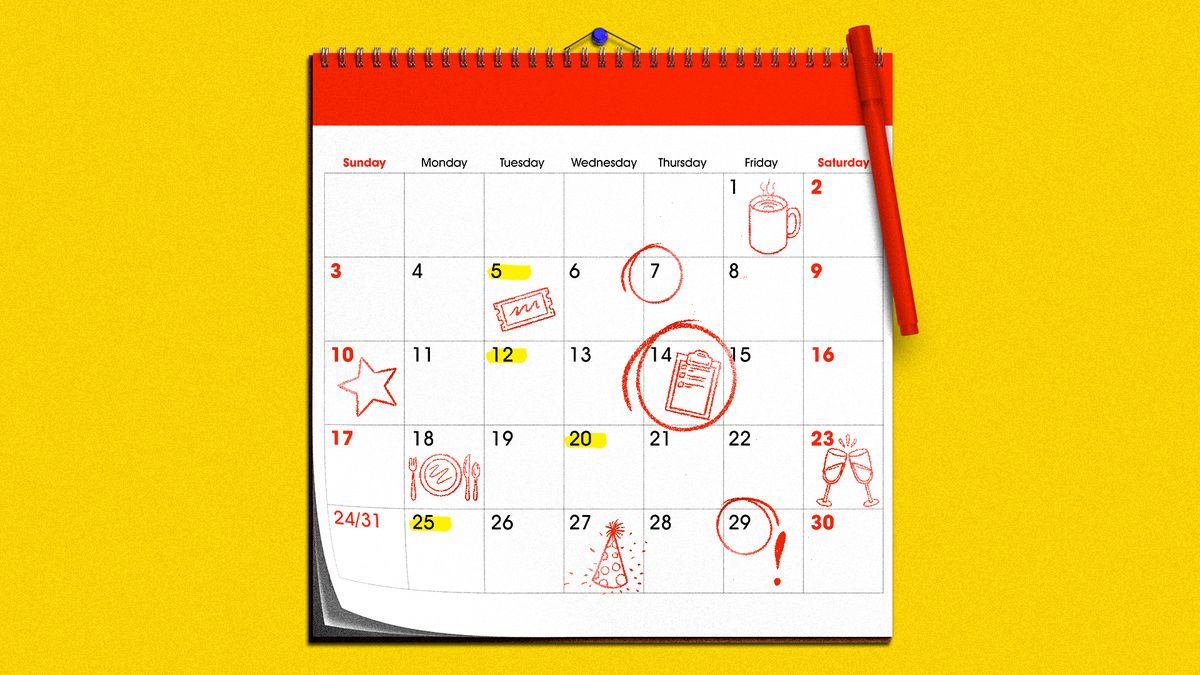
January 15, 2025 – NCUIH Monthly Policy Workgroup
January 16, 2025 – Office of Urban Indian Health Programs (OUIHIP) Urban Program Executive Directors/Chief Executive Officers Monthly Conference Call
January 22-23, 2025 – IHS FY 2027 National Tribal Budget Formulation Workgroup Area Report Webinar
One last thing, check out this upcoming funding opportunity:
The Health Resources and Services Administration (HRSA) is accepting applications for its Behavioral Health Workforce Development (BHWD) Technical Assistance Program.
- This program provides support to HRSA’s BHWD recipients to expand the number of highly trained behavioral health providers nationwide. Eligible programs include the Behavioral Health Workforce Education and Training Program for Professionals, Behavioral Health Workforce Education and Training Program for Paraprofessionals, and the Graduate Psychology Education program. Funding is expected to be multi-year, with an estimated award date of September 1, 2025.
- Application Deadline Date: March 3, 2025. (Apply)

